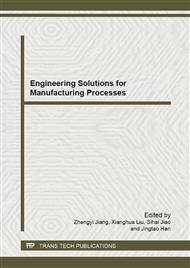p.1738
p.1745
p.1750
p.1757
p.1761
p.1765
p.1770
p.1774
p.1779
Membrane Computing Model Design with Quantum-Inspired Evolutionary Algorithms
Abstract:
As a branch of natural computing, membrane computing has attracted much attention in various disciplines. But the programmability of membrane computing models is an ongoing and challenging issue in this area. This paper develops the automatic design of membrane computing models through predefining the membrane structure and initial objects and introducing a modified quantum-inspired evolutionary algorithm with a local disturbance to select an appropriate subset from a redundant evolution rule set. The main idea of the presented method is that multiple membrane computing models, instead of only one model like in the literature, can be designed by applying one redundant evolution rule set. The effectiveness of the design method is verified by the experiments.
Info:
Periodical:
Pages:
1761-1764
Citation:
Online since:
January 2013
Authors:
Price:
Сopyright:
© 2013 Trans Tech Publications Ltd. All Rights Reserved
Share:
Citation:


